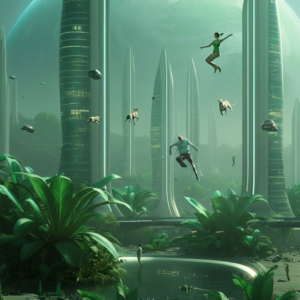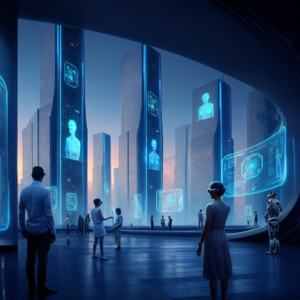Human communication is the bedrock of society, built on a mix of truth, deception, and everything in between. But have you ever paused to wonder—what if humans were biologically programmed to never lie? Imagine the profound effects this would have on our relationships, social structures, and ethics. Would a world without lies be the utopia truth-seekers have always dreamed of, or would it present unforeseen challenges?
This post examines the intricacies of lying as a human phenomenon and dives into how a world without falsehood could transform society—for better or worse.
The Nature of Lies
Lying is inherently human. From a scientific standpoint, lying likely developed as an evolutionary tool. Early humans may have relied on deception to outwit predators, negotiate social hierarchies, or secure valuable resources. Over time, lying became a social skill—a sophisticated survival mechanism that intertwined with the fabric of our communication systems.
Psychological Reasons for Lying
Humans lie for countless reasons, ranging from self-protection and conflict avoidance to personal gain or even kindness. “White lies,” for example, are often told to spare others’ feelings or prevent emotional harm. On the other hand, larger lies can stem from fear, insecurity, or the pursuit of power.
Cultural Contexts of Deception
Across various societies and cultures, lying holds different connotations. Some see deception as inherently unethical, while others view it as a necessary instrument of diplomacy. Regardless of societal norms, lies—both small and large—are a universal part of human interaction.
A World Without Lies: The Vision
Now imagine a world where lying is biologically impossible—a species-wide condition where deception has no place. What would such a society look like?
Trust and Transparency
For one, interpersonal trust would skyrocket. Imagine always knowing that every word spoken was genuine. Business deals would lack hidden agendas, legal battles would be resolved faster, and governments would operate with unparalleled transparency.
Streamlined Relationships
Relationships, whether romantic or platonic, would gain new dimensions of honesty. Misunderstandings caused by lies would dissipate, paving the way for deeper bonds built solely on truth.
Efficiency in Communication
Without the need to filter through potentially misleading information, communication would become more streamlined. Discussions would focus on solutions or factual discourse, eliminating the exhausting mental gymnastics of detecting dishonesty.
The Dark Side of Absolute Truth
While the vision of a world without lies seems idyllic, it is crucial to explore the potential downsides. Absolute honesty, for all its value, could disrupt fundamental human experiences.
Loss of Privacy
Think of all the times you’ve told a half-truth to protect your privacy. Without the ability to lie, personal boundaries could be challenged repeatedly. Your inner thoughts and vulnerabilities might become exposed, leaving you feeling overly scrutinized.
Harsh Realities in Relationships
Sometimes, small deceptions (“That outfit looks amazing!” or “I’m totally fine.”) protect our emotions and maintain harmony. Stripping away these nuances could lead to brutal exchanges, potentially causing irreparable rifts in personal relationships.
Difficulty in Diplomacy
On a global scale, diplomacy often relies on the strategic omission or distortion of truths. If every nation shared everything openly, could fragile alliances hold? Or would unresolved conflicts escalate without mediative deception to soften them?
The Ethical Dilemma
The idea of a society rooted solely in truth raises an ethical conundrum. Can honesty be an absolute moral good, or does humanity’s complexity necessitate the occasional lie?
Autonomy and Freedom
Lying, paradoxically, is tied to personal autonomy. It grants individuals the freedom to choose what others know about their lives, emotions, and intentions. Removing the ability to lie could infringe on fundamental notions of autonomy and self-expression.
The Right to Privacy
The ethical implications also touch on privacy. If honesty becomes compulsory, does that mean individuals lose the right to withhold information for their own safety or comfort? Is a completely truthful world synonymous with a lack of freedom?
The Future of Truth
While a biologically lie-free world may be speculative, advances in technology are bringing us closer to shaping similar realities. Artificial intelligence already plays a significant role in detecting lies through voice analysis, facial recognition, and behavioral patterns.
AI and Truth-Telling
AI could create systems that promote honesty in industries like law enforcement, finance, and customer service. However, these innovations must balance truth-seeking with fairness, avoiding biases or overreach.
Real-World Applications
Imagine workplaces where anonymous tools could identify dishonest practices, or social media platforms where fake news was eradicated in real time. The future of truth includes immense possibilities, but it also presents challenges in defining ethical boundaries.
What Does the Truth Mean to You?
Exploring a world without lies forces us to reconsider our relationship with truth, freedom, and morality. While the idea of perfect honesty might sound ideal, the complexities of human interaction make deception a nuanced tool rather than a black-and-white ethical failing.
Would a world without lies bring clarity and peace? Or would we lose some of the flexibility that makes us human? We’d love to hear your thoughts—leave a comment and join the discussion about the future of truth in human society.







